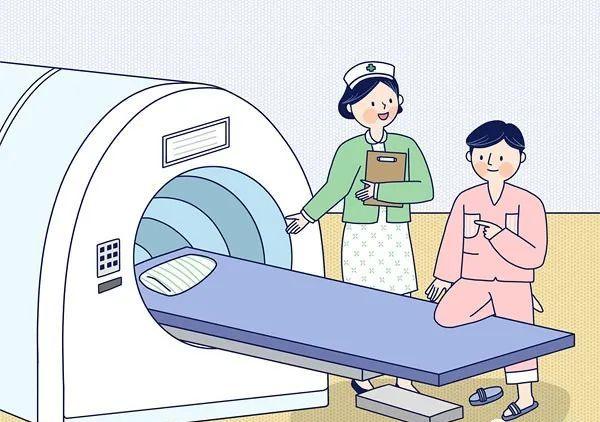Cancer, in essence, is a mistake that occurs when cells divide. There are 2 categories of genes, pro-oncogenes and oncostat genes, which determine the emergence and development of cancer. Pro-cancer genes can promote the formation of cancer, and tumor suppressor genes can inhibit tumors, if tumor suppressor genes mutate and lose function, tumor cells will proliferate uncontrollably, eventually leading to cancer. The latest research once again confirms that TP53 is the most critical tumor suppressor gene mutation, let's know about TP53 now.

In the latest issue of the Journal of Nature' Newsletter, a paper by a joint team of the University of Virginia and the Salk Institute was published. The research team combined information about gene mutations with cancer prevalence data to reveal how often each gene mutates in cancer patients. The results showed that the most common genetic mutation in cancer was TP53, accounting for 34.5%, followed by PIK3CA and LRP1B, which accounted for 13.5% and 13.1%, respectively, and KRAS, which was previously considered to account for 25%, accounted for only 11% of the actual mutations. TP53 is officially locked again, which means that if TP53 can be allowed to perform normal cancer suppressant functions, many cancer prevention and treatment problems can be solved. So, where is TP53?
Previous studies have suggested that more than 50% of tumor patients have mutations in the TP53 gene. The TP53 gene, located on the short arm of the human body's chromosome 17, is named because it can encode a protein with a molecular weight of 53 kDa, called P53, which can be activated when DNA is damaged or hypoxic, stagnating the cell cycle, performing DNA repair, and if the repair fails, activating the downstream gene, causing the cell to apoptosis. In short, this effect can make the cells that appear wrong in cell division be destroyed in time, thereby reducing the production of tumors.
The protein produced by the tumor suppressor gene is like a special anti-terrorism force. The total number of cells in our body exceeds 10,000,000 billion, and these cells function and coordinate with each other, but the lifespan of cells is limited and needs to be constantly proliferated to replace senescent cells. The total number of cells is so huge that it is inevitable that mistakes will occur in the process of cell division, and such cells that appear wrong, like the black sheep in society, will encroach on resources and cause diseases and even cancer in the body. P53 performs monitoring functions, so that normal cells continue to divide and proliferate, if the cell division is found to be wrong, it will assess the damage, the degree of damage is not large, it will help the cell repair, if the DNA is seriously damaged, it will lead to apoptosis, forcing the cell to commit suicide with serious errors. Therefore, TP53 is called a tumor suppressor gene.
The tumor suppressor gene TP53, the monitoring of the cell cycle and genetic material, is not alone, but is related to the telomere function of chromosomes. Every time a DNA molecule divides and replicates, the telomeres shorten, and when the telomeres are exhausted, the cells go to apoptosis. In the event of DNA damage, P53 is responsible for activating the transcription of genes, and can inhibit the accumulation of telomere damage, maintain chromosome integrity, and protect the accuracy of genetic information. By detecting TP53 mutations, the risk of liver, breast, esophageal, prostate and other cancers can be predicted and provided early warning.
Tumor suppressor genes are a hot spot in the field of cancer research. For example, studies have found that inactivation of the TP53 gene or the shutdown of the P53 protein is a critical step in tumor development, and if drugs are used, P53 can be restarted to obtain anti-cancer effects. That day will come, and it will be the time when we humans will completely defeat cancer.
The tumor suppressor gene TP53 is also related to certain scientific hypotheses. Because, scientists have found that the larger the body size, the higher the risk of cancer when compared to the same species. The risk of cancer varies between species of different sizes. This phenomenon is called Peto's paradox. Some people speculate that the legendary giant family is a real existence, but the giant gene is sealed on chromosome 17, and when scientists really find out the mystery of TP53 and master the tumor suppressor gene freely, they may open the giant gene by hand, so that human offspring can grow like elephants but not cancer. This topic is very long, let's stay in the future and talk about it.
Whoever loves, pass on health to whom.
Your health, my concern. Professionals observe health from a scientific and humanistic perspective, including a series of express reports, details, reminders, doubts, observations, opinions, historical stories, etc., with the content of the original works of the author Wei Hongling and the team. All forms of misappropriation and reproduction without permission will be refused, otherwise they will be prosecuted in accordance with relevant laws.